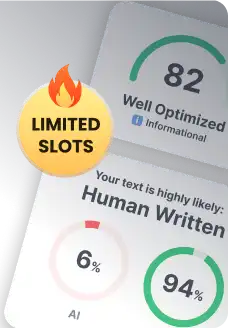Keywords are the building blocks of SEO. Just like a house needs strong foundations, your website needs the right keywords to attract visitors and rank higher in search results. However, not all keywords are created equal. Understanding the different types—from broad “seed keywords” to specific “long-tail phrases”—is crucial for building a robust SEO strategy. In this guide, we’ll explore the key types of keywords and how to choose the right ones to build a powerful online presence.
Key Takeaways
- Keywords are an integral part of search engine optimization and digital marketing campaigns, linking users to relevant content.
- There are different types of keywords, such as short-tail, long-tail, and LSI (Latent Semantic Indexing) keywords. Each type serves a different purpose when it comes to targeting and moving audiences.
- Short-tail keywords are usually just one or two words, are very popular, and tend to be very competitive.
- Long-tail keywords are exact phrases containing three or more words. They usually bring in less search volume but better conversion since they hit narrower niches.
- These keywords are semantically related to the main keyword and help improve content relevance and search engine rankings.
- It’s important to understand these different types of keywords. When you use them strategically, your content and marketing efforts will become more effective.
What Are Keywords?
Keywords are the specific words or phrases people enter into search engines like Google. They serve as the link between a user’s search and the available online content, helping search engines find the best pages to match a query. Using the right keywords can attract more visitors to a website by ensuring it aligns with what people are searching for.
Importance in SEO
Keywords act as a key element in SEO. When used effectively, they improve a website’s search engine ranking. It’s not about overloading content with keywords; it’s about understanding the intent behind them. For example, keywords like “top-rated smartphones” attract users who are ready to make a purchase, increasing conversions.
Keywords also reveal user behavior, offering valuable insights into their needs. This information is crucial for creating content that resonates with the audience, ensuring that tactics align with user expectations, and improving the overall experience.
Types of Keywords
Understanding keyword types helps you craft effective SEO strategies aligned with your marketing goals. Keywords are the foundation of SEO, guiding users to relevant content. Let’s dive into the various categories and how to use them.
1. Seed Keywords
Seed keywords are broad terms that serve as the foundation for further keyword research. They help you discover more specific long-tail keywords.
- Examples: “fitness,” “technology,” “business,” “travel,” and “education.”
2. Informational Keywords
Informational keywords target users seeking knowledge or answers. They are crucial for driving traffic to content that educates or informs, particularly at the start of the buyer’s journey.
- Examples: “How to train a dog,” “What is blockchain,” and “Tips for healthy eating.”
3. Commercial Keywords
Commercial keywords reflect the intent to buy or compare products. They appeal to potential buyers near the decision-making point, bridging curiosity and purchase.
- Examples: “Best laptops 2023,” “Top coffee makers,” and “Compare smartphones.”
4. Transactional Keywords
Transactional keywords indicate a user’s readiness to buy. They are key to boosting conversions and sales by signaling that the user is close to making a purchase.
- Examples: “Buy Nike shoes online,” “Order pizza near me,” “Download software.” and remember it.
5. Navigational Keywords
Navigational keywords are used by people looking to visit a specific website or brand. These keywords help build brand awareness and direct traffic to specific pages.
Want to try SurgeGraph for free?

Generate 20 documents

SEO tools (Auto Optimizer, Internal Linking, and more)

No credit card required
- Examples: “Facebook login,” “Amazon Prime Video,” “Gmail.”
6. Long Tail Keywords
Long-tail keywords are three or more words targeting specific queries. They have less competition and higher conversion potential than short-tail keywords, serving niche audiences.
- Examples: “eco-friendly yoga mats for beginners,” “affordable Italian restaurants in Chicago.”
7. Short Tail Keywords
Short-tail keywords, or head search terms, are general and widely used. They often have lower conversion rates due to their broad and ambiguous nature.
- Examples: “shoes,” “music,” “travel.”
8. Primary Keywords
Primary keywords are the main focus of a page’s SEO strategy. They are essential for optimizing content for search engine rankings and should align closely with the core topic.
- Examples: “digital marketing strategies,” “healthy recipes.”
9. Secondary Keywords
Secondary keywords complement primary keywords, helping content rank for related terms and broaden its reach. They capture additional audience interest.
- Examples: “digital marketing tools” (complements digital marketing), “vegetarian meal ideas” (complements healthy recipes).
10. Geotargeted Keywords
Geotargeted keywords are location-specific terms that attract local search traffic, especially valuable for businesses targeting local customers.
- Examples: “best coffee shop in Berlin,” “plumber in New York.”
Why Keywords Matter
Keywords direct targeted traffic to your website by linking what people search for with what you offer. The right keywords attract visitors genuinely interested in your content, services, or products, boosting engagement and conversions.
Targeted traffic brings your site in front of individuals more likely to engage with your business, making keywords a critical component of your digital strategy.
Keywords significantly impact SERPs and visibility. Including relevant keywords in your content helps search engines like Google understand your pages and their relevance, enabling proper indexing and improving search visibility.
Google organizes content based on search intent (informational, navigational, transactional, etc.), so aligning with user intent is crucial. The core of SEO is matching keywords with user intent. Keywords reveal what people are searching for, allowing you to create content that meets their needs.
Benefits of Seed Keywords
Seed keywords are the foundation of keyword research, providing broad ideas that lead to more specific keyword phrases. They guide content creation and optimization, ensuring alignment with user search intent. Seed keywords help you discover related terms, expanding your reach and strengthening your content strategy.
Advantages of Informational Keywords
Want to try SurgeGraph for free?

Generate 20 documents

SEO tools (Auto Optimizer, Internal Linking, and more)

No credit card required
Informational keywords attract users seeking knowledge and insights. Content focused on these keywords builds authority and trust, positioning your brand as a knowledgeable resource. Informational keywords can account for up to 49.2% of a domain’s rankings, highlighting their value.
Importance of Commercial Keywords
Commercial keywords target users ready to buy, making them crucial for conversions and sales. Optimizing for these keywords helps you reach potential customers and guide them through the sales funnel, turning curiosity into action.
Value of Transactional Keywords
Transactional keywords indicate high purchase intent, making them crucial for capturing leads and converting visitors into customers. Focusing on these keywords boosts conversion rates.
Relevance of Navigational Keywords
Navigational keywords help users find a specific brand or website. Optimizing for these keywords increases brand recognition and makes your site easier to find, driving direct traffic and strengthening your online presence.
Benefits of Long Tail Keywords
Long-tail keywords target specific queries with lower competition, often leading to higher conversion rates by closely matching user intent. They help attract niche audiences and drive highly interested traffic to your site.
The usefulness of Short Tail Keywords
Short-tail keywords drive high search volume traffic and are vital for brand awareness. Balancing short-tail with long-tail keywords ensures broad reach and targeted engagement.
Significance of Primary and Secondary Keywords
Primary keywords guide content optimization, while secondary keywords enhance relevance. Together, they provide comprehensive SEO, helping search engines understand the full scope of your content.
Impact of Geotargeted Keywords
Geotargeted keywords improve local search rankings, crucial for businesses targeting local customers. Optimizing for these keywords ensures you reach the right audience in your area.
Frequently Asked Questions
Why Do Keywords Matter?
Keywords matter because they bring traffic to your site. They assist in increasing your search engine ranking, which ensures your content gets more exposure. Good keyword usage helps you get found.
How Do Keywords Affect SEO?
Your SEO is directly affected by keywords. They help search engines understand your content, which allows you to rank better. Effective keyword use boosts website traffic and visibility.
What Is Keyword Research?
Keyword research is the process of discovering and analyzing search terms. It helps in determining the ideal keywords to target your audience. It is crucial for a solid SEO strategy.





